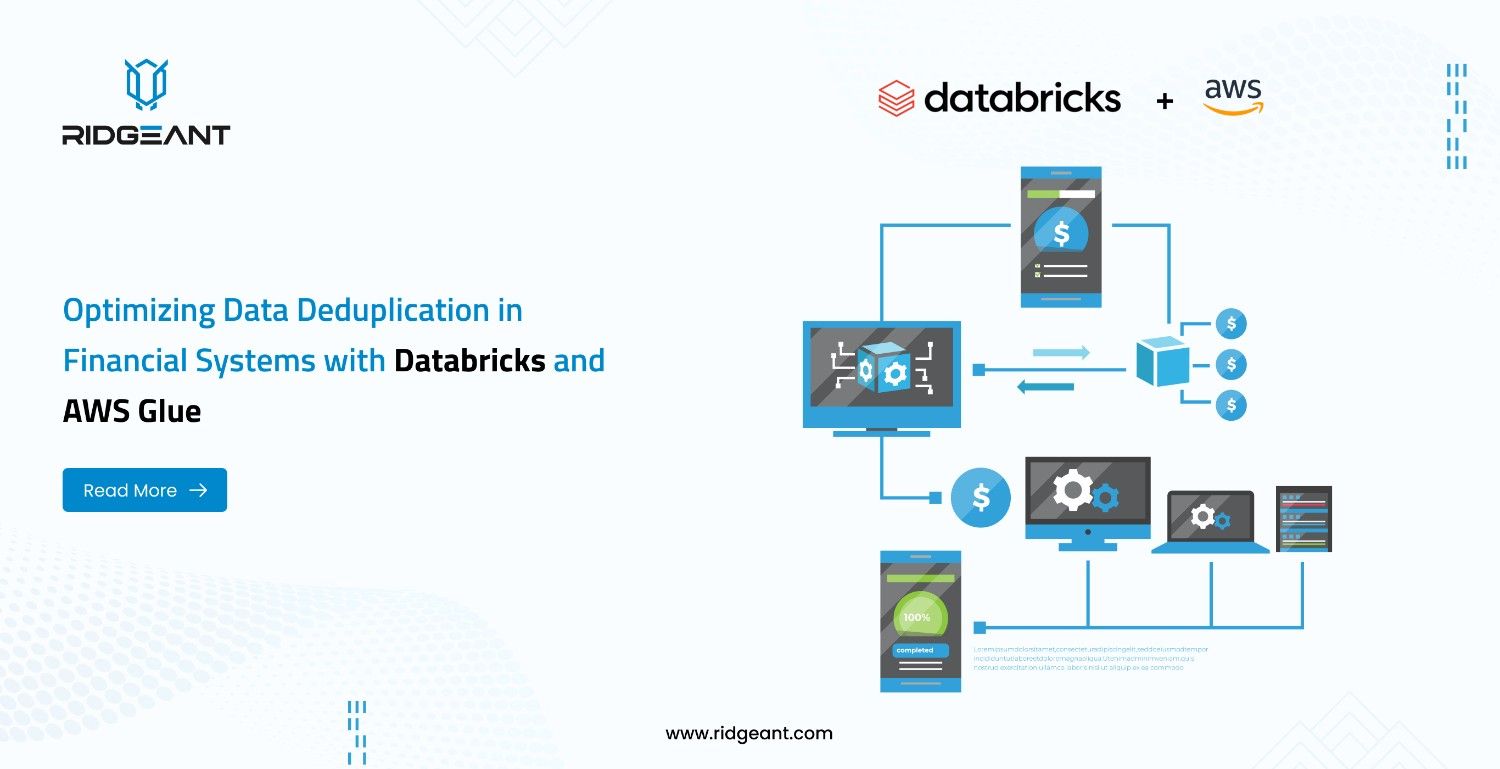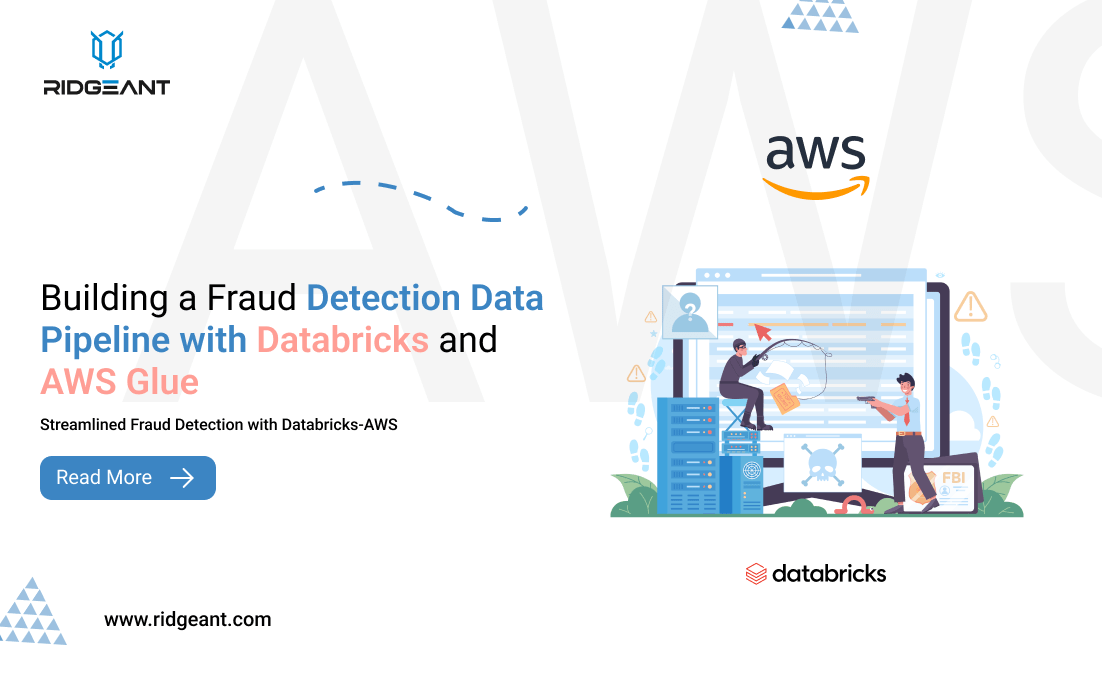
Generative AI to Enhance Data Warehousing: Best Practices and Use Cases
- Data Science, Generative AI
- September 2, 2024
- Ridgeant

The intersection of Generative AI and Data Warehousing is transforming the way businesses manage and analyze their data. As enterprises grapple with a staggering 400% increase in data volume over the past decade, the integration of these technologies offers ways to manage this growth efficiently while gaining deeper insights. This fusion not only enhances data management processes but also reveals deeper analytical capabilities, positioning businesses at the forefront of data-driven decision-making.
Evolution of Data Warehousing
Data warehousing has undergone significant transformations since its inception in the 1980s. Initially designed for centralized data storage to support business reporting, it has evolved to meet the growing demands of digital transformation.
From Centralization to Data Lakes
The early focus on data centralization gave way to more complex querying capabilities with the advent of Online Analytical Processing (OLAP) and data mining techniques. This shift enabled businesses to extract more nuanced insights from their data repositories.
The Big Data Revolution
In the early 21st century, the rise of big data brought a huge increase in the amount, types, and speed of information. This change required new technologies like Hadoop and NoSQL databases to manage unstructured data on a larger scale, improving traditional data warehousing systems.
Current Challenges in Data Warehousing
Modern data warehousing faces several critical challenges:
- Data Volume and Variety: The sheer scale and diversity of data generated daily pose significant storage and processing challenges.
- Real-time Processing Demands: Businesses require instant insights, putting pressure on data warehousing systems to deliver real-time analytics.
- Data Quality and Consistency: Maintaining data integrity across diverse sources remains a persistent challenge, impacting the reliability of insights derived from warehoused data.
Generative AI Brief
Generative AI represents a subset of artificial intelligence focused on creating new data that mimics real-world patterns and insights. This technology goes beyond traditional analytical methods, offering capabilities that can transform data warehousing practices.
Definition and Core Concepts
Generative AI utilizes machine learning algorithms, particularly deep learning neural networks, to generate new content based on training data. In the context of data warehousing, it can create synthetic datasets, predict trends, and automate complex data management tasks.
Key Technologies: Deep Learning and Neural Networks
Deep learning, a subset of machine learning, employs multi-layered neural networks to process data with a high degree of abstraction. These networks can identify complex patterns and relationships within data, making them particularly suited for handling the intricacies of modern data warehousing challenges.
Generative AI’s Impact on Data Warehousing
The integration of Generative AI into data warehousing practices is reshaping the landscape of data management and analysis:
Improving Design and Structure
Generative AI algorithms can analyze existing data structures and recommend optimized schemas, improving the overall architecture of data warehouses. This capability enables more efficient data storage and retrieval, adapting to evolving business needs.
Automating ETL Processes
One of the most significant impacts of Generative AI is in the automation of Extract, Transform, Load (ETL) processes. AI-powered ETL tools can:
- Automatically categorize and tag incoming data
- Identify and rectify inconsistencies or errors
- Optimize data transformation rules based on historical patterns
For instance, global corporations like Coca-Cola utilize AI-powered ETL tools to streamline data integration across their supply chains, enhancing procurement and sourcing processes.
Enhancing Data Quality and Consistency
Generative AI excels in automated data cleansing and continuous quality monitoring. These capabilities ensure that data remains accurate, consistent, and reliable over time. According to Gartner, poor data quality costs enterprises an average of $15 million per year. Continuous AI-driven data quality monitoring can significantly reduce these costs by identifying and correcting errors in real-time.
Best Practices for Implementing Generative AI in Data Warehousing
To maximize the benefits of Generative AI in data warehousing, organizations should adhere to the following best practices:
Data Preparation and Cleansing:
- Implement robust data cleaning processes before training AI models
- Utilize AI-powered tools for ongoing data quality management
- Ensure data consistency across various sources
Model Selection and Training:
- Choose AI models appropriate for specific data warehousing tasks
- Regularly retrain models with updated data to maintain accuracy
- Validate model outputs against established benchmarks
Integration with Existing Systems:
- Develop a phased approach to integrating AI into existing data warehousing infrastructure
- Ensure compatibility between AI tools and current data management systems
- Provide adequate training for staff to effectively use new AI-enhanced tools
Ethical Considerations and Bias Mitigation:
- Implement safeguards to protect sensitive data when generating synthetic datasets
- Regularly audit AI models for potential biases
- Adhere to data privacy regulations such as GDPR and HIPAA
Use Cases of Generative AI in Data Warehousing
Generative AI offers numerous practical applications in data warehousing:
- Automated Schema Design: AI-powered tools can analyze data sources and suggest optimal schema designs, particularly beneficial for businesses dealing with large, complex datasets. For example, e-commerce companies can use these tools to efficiently adapt their data warehouse schemas as they expand into new product categories.
- Intelligent Data Transformation: Generative AI can create sophisticated data transformation rules, adapting to new data formats and sources automatically. This capability is particularly valuable in industries with a rapidly changing data world, such as financial services or healthcare.
- Predictive Maintenance of Data Warehouse Systems: By analyzing system performance data, Generative AI can predict potential issues and recommend preemptive maintenance, reducing downtime and optimizing resource allocation.
- Natural Language Interfaces for Data Querying: Generative AI enables the development of natural language processing (NLP) interfaces, allowing users to query data warehouses using everyday language. This democratizes data access within organizations, enabling non-technical staff to derive insights directly.
Future Outlook
The future of data warehousing with Generative AI promises exciting advancements:
Emerging Trends
- Self-Optimizing Storage Systems: AI-driven systems that dynamically adjust storage configurations based on usage patterns and data importance.
- Advanced Data Protection: Generative AI enhancing cybersecurity measures by predicting potential threats and generating synthetic data for security model training.
Potential Advancements
- Autonomous Data Warehouses: Systems capable of self-management, reducing the need for human intervention in routine tasks.
- Hyper-Personalized Analytics: Generative AI creating tailored analytical models for individual users or departments within an organization.
As we look to the future, the ongoing evolution of Generative AI in data warehousing holds the key to unlocking unprecedented levels of data intelligence and operational efficiency. While challenges related to data privacy, security, and the need for skilled personnel remain, focused efforts on education, ethical AI use, and privacy-preserving technologies will pave the way for responsible and transformative integration of these technologies.
The journey ahead is as exciting as it is promising, heralding a new chapter in the story of data warehousing and analysis. As Generative AI continues to evolve, its impact on data warehousing will only deepen, offering businesses new opportunities to leverage their data in groundbreaking ways.
Take Action with Ridgeant
At Ridgeant Technologies, we specialize in helping businesses use the power of Generative AI for data warehousing. Whether you’re looking to optimize your data architecture, automate processes, or ensure the highest data quality, our team is ready to guide you every step of the way. Explore how we can support your business in making data a true driver of innovation














